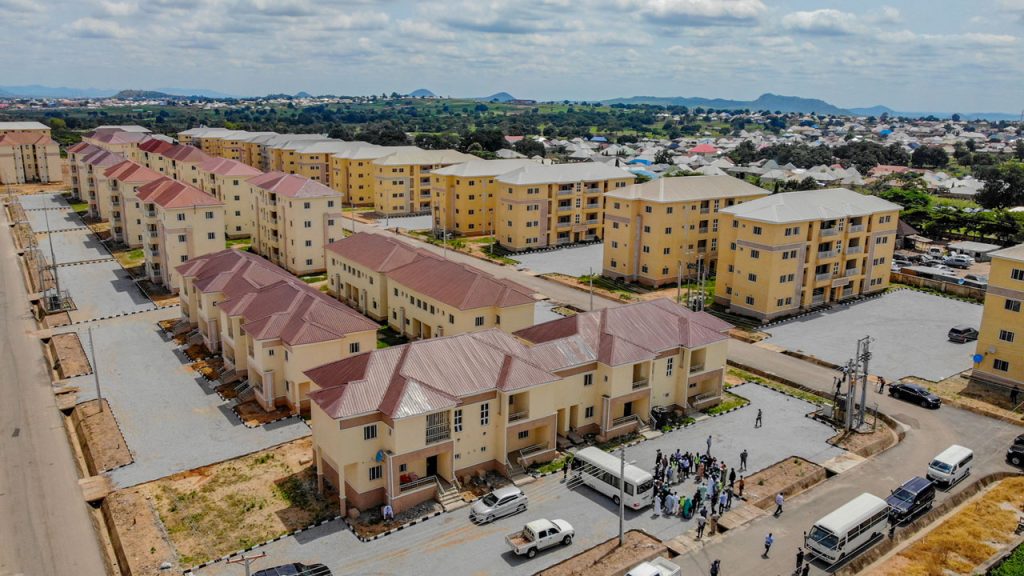The Investor-Driven Landscape of Lagos Real Estate
Lagos, Nigeria’s vibrant economic hub, exhibits a distinct characteristic in its real estate market: a significant investor presence. Over 40% of residential properties are held by investors, not occupants. This trend is particularly prominent in upscale areas like Ikoyi, Victoria Island, Lekki, and Ikeja, transforming these neighborhoods into focal points for real estate investment activities. This investor-centric dynamic underscores the growing influence of speculation in the Lagos property market.
This pattern of investor dominance contrasts sharply with the overall housing affordability in Nigeria. With only around 10% of Nigerians capable of purchasing homes, the concentration of property ownership in the hands of investors accentuates the existing affordability gap. This disparity highlights the challenge faced by many residents seeking homeownership in a market heavily influenced by investment interests.
Investment Mechanisms and Attractive Yields
Investors utilize various sophisticated instruments, such as Real Estate Investment Trusts (REITs) and Real Estate Investment Groups (REIGs), to acquire and manage rental properties. These mechanisms provide a degree of separation from direct property management, facilitating investment activities. Furthermore, the rental market in Lagos offers appealing yields, typically ranging from 4.5% to 6% annually. These attractive returns further incentivize investment in residential properties, perpetuating the cycle of investor-driven ownership.
The allure of ocean-view properties contributes to the premium pricing observed in certain areas of Lagos. Coastal locations like Ibeju, Lekki, and Abijo command higher prices, often up to 25% more than inland properties. This premium reflects the desirability of oceanfront living and the associated lifestyle. While the precise figure might vary, it is undeniable that the unique features and sought-after locations of ocean-view properties contribute to their elevated market values.
Property Appreciation and Demand Dynamics
Residential properties in Lagos generally appreciate at a rate of 4% to 6% per annum, driven primarily by infrastructure development. As new roads, bridges, and public facilities are constructed, neighbourhoods become more accessible and appealing, driving up demand and consequently property values. This infrastructure-driven appreciation underscores the significance of urban development in shaping the real estate landscape.
Lagos, characterized by its bustling population and economic opportunities, experiences consistent demand for housing. The influx of people seeking better employment and living conditions exerts upward pressure on property values. Even in areas without significant new developments, the persistent demand sustains a healthy rate of appreciation, ranging from the typical 3-5% in established areas up to 10% annually in rapidly developing sectors. This vibrant demand dynamic further fuels the attractiveness of the Lagos real estate market for investors.
A Synopsis of the Report
The State of Lagos Housing Market report, in its third edition published by the Roland Igbinoba Real Foundation for Housing and Urban Development, sheds light on these key trends shaping the real estate dynamics in Lagos. It emphasizes the significant role of investors, the influence of attractive yields, the premium placed on coastal locations, and the impact of infrastructure development and population growth on property appreciation. The report serves as a valuable resource for understanding the intricate interplay of factors driving the evolving real estate landscape in Lagos. This information is crucial for potential homebuyers, investors, and policymakers aiming to navigate the complexities of this dynamic market. The contrast between high investor activity and limited affordability for average Nigerians presents a critical challenge that needs to be addressed for a more balanced and inclusive housing market. This requires a multifaceted approach that considers factors such as access to financing, affordable housing initiatives, and regulatory frameworks that promote sustainable and equitable growth in the real estate sector. Understanding these market dynamics is essential for informed decision-making and for shaping policies that can facilitate a more accessible and equitable housing market in Lagos.


